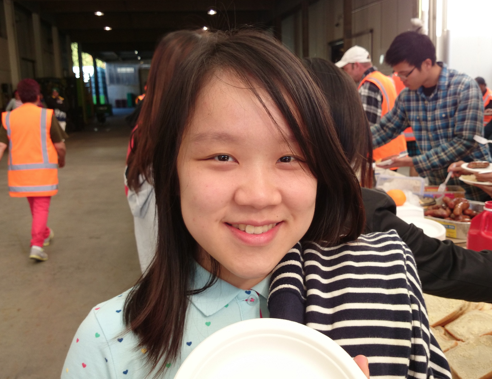Yean Ming Chew
What did you do before joining the IBR course at Warwick?
After graduation, I took a gap year to explore New Zealand, where I worked as a fruit packer and administrator. Before coming to Warwick, I worked at Nanyang Technological University (NTU), Singapore, as a research assistant for about two years. During that period, I studied inter-microbial interactions within mixed species biofilms of a few skin commensals, which was a collaborative project between L'Oréal and the biofilm research centre located in NTU, Singapore Centre for Environmental Life Science Engineering (SCELSE).
Why did you choose to study IBR at Warwick?
SCELSE houses researchers from different countries and diverse scientific backgrounds, which I liked. This encouraged me to apply for a postgrad degree in a different country which had a different research environment and to do a course which offered a wide range of research disciplines. The opportunity to work with non-biologists was also a plus. I believe this is the right way to do science, to raise a question from different points of view and to answer it by employing different approaches.
How have you found the course? What have been your favourite parts? Any challenges?
The course has been fun! We've been able to learn some coding and computational skills, which have equipped us with some basics that will enable us to communicate with the experts in the future if required. The oral exam was quite challenging but was probably my favourite part of the course, as I'd never done anything like that during my undergrad degree. As an international student and someone who did their undergraduate degree outside of the UK, the new environment and the different teaching styles or different ways of thinking have definitely been the things that I have had to adapt to. Having said that, I enjoyed the course as I like to challenge my limits.
What do you feel you have gained from the course?
Firstly, better time management. Occasionally we've had to meet a few deadlines back to back. As a result, I've learnt how to manage my time more wisely. I've also learnt how to speak out - either to ask for help or to express my opinion. Everyone is willing to listen to you and to help. And finally, friendship! I've received a massive amount of support from my encouraging friends. We do not compete with each other; we learn from everyone!
How do you find the cohort activities?
I've enjoyed the chalk talks as the speakers only get a whiteboard to explain their projects, without using PowerPoint slides. This prepares us for future conferences and job interviews to introduce our work and ideas anytime, anywhere.
The annual student conference was the highlight of the year as we learnt science while having fun. Sitting in a room and listening to what people have been working on all day might be a daunting task but we got to do some outdoor activities as well.
Have you been involved in any societies/ social activities outside of the course?
I do judo and BJJ (Brazilian Jiu Jitsu) regularly with the university Judo and BJJ Club. Other than that, I enjoy playing frisbee and squash during my free time. IBR people enjoy competing against each other in sports! House parties and birthday outings are also some of my favourite activities.
Do you have future career plans yet?
I can’t say for sure, but currently I'd like to do a few years of post-doc and then maybe explore industry.
What advice would you give to someone considering applying for IBR?
It’s going to be a fruitful year so don’t be afraid; everyone is there to help you.

